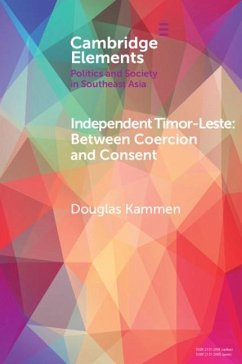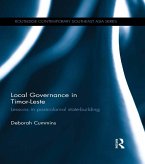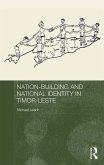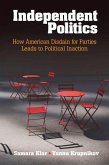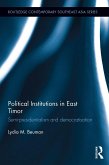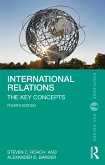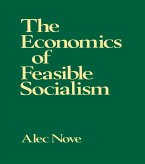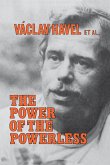This Element explores the primary modes by which rulers have exercised power and shaped political relations in Timor-Leste across four distinct periods. The contrast between coercion under colonial rule and consent expressed through the 1999 referendum on independence exerted a powerful influence on scholarship on Timor-Leste's politics and future. Since the restoration of independence in 2002, however, politics in Timor-Leste are best understood in terms of powerful economic constraints during the first Fretilin government (2002-6), and thereafter, thanks to revenue from the country's petroleum reserves, a ruling strategy based on a wide range of inducements (rather than genuine consent).
Dieser Download kann aus rechtlichen Gründen nur mit Rechnungsadresse in A, B, BG, CY, CZ, D, DK, EW, E, FIN, F, GR, HR, H, IRL, I, LT, L, LR, M, NL, PL, P, R, S, SLO, SK ausgeliefert werden.

